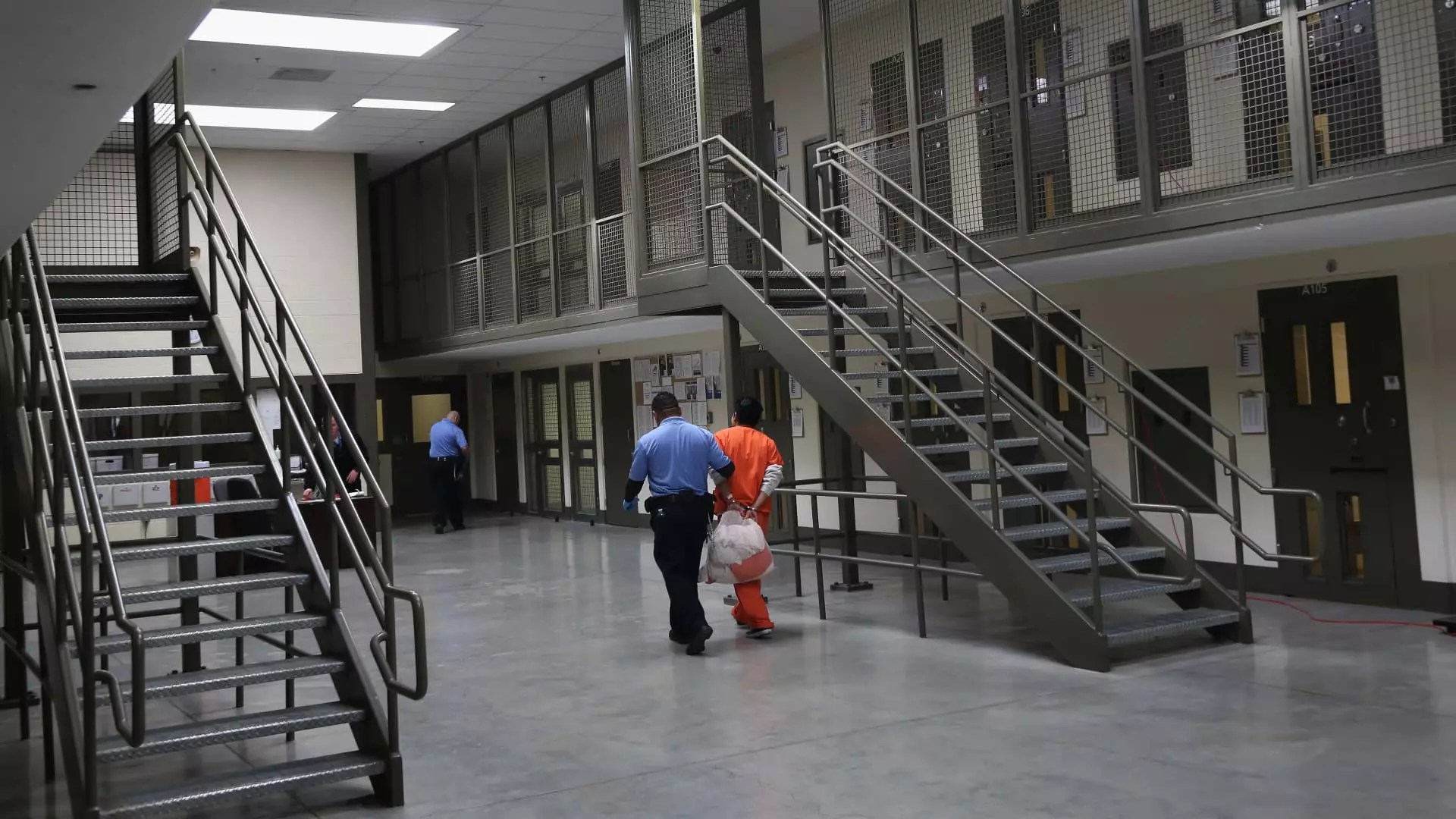The recent drop of 6% in Tesla’s share price underscores how quickly investor sentiment shifts in response to the political endeavors of its leadership. Elon Musk’s announcement to form a new political party, the “America Party,” might appeal to a faction of the conservative-leaning electorate, but it significantly unsettles the market. This move signals a risk-laden foray into divisive politics, potentially alienating a broad base of investors wary of political distraction overshadowing Tesla’s core mission of innovation. While Musk’s populist tilt may galvanize certain followers, it risks alienating more moderate shareholders and international investors who prefer stability and a focus on long-term growth. This volatility could prove detrimental, especially in an industry where technological leadership hinges on consistent investor confidence.
Privatization and its Discontents: The Rise of Private Prisons
The surge in private prison stocks—Geo Group and CoreCivic—highlight a controversial facet of the current political landscape. Gains of 7.6% and 5.4% suggest that government spending measures, such as increased funding for immigration detention centers, are directly bolstering these companies’ prospects. However, this growth raises ethical questions about profit being intertwined with detention policies that many see as punitive and inhumane. From a pragmatic standpoint, the sector’s trajectory appears tied to misguided policies prioritizing short-term revenue over societal benefit. Investors should critically assess whether this trend reflects genuine economic strength or simply the influence of political decisions that could reverse with a change of administration.
Market Reactions: Winners and Losers Amid Policy Fluctuations
Molina Healthcare’s modest 1% uptick suggests resilience amid legislative uncertainty, but its revised earnings forecast points to mounting cost pressures due to health sector inflation. This indicates that even companies confident in their long-term outlook are feeling the pinch of rising medical costs, a reminder that healthcare is still subject to political and economic turbulence. On the other hand, solar energy firms like SolarEdge Technologies demonstrated vulnerability—despite a significant rally, the sector’s outlook darkened a day later due to policy reversals. This volatility underscores the risks inherent in relying heavily on government support, even when short-term gains appear promising.
Strategic Movements: Mergers, Upgrades, and Market Sentiment
The acquisition of Wns Holdings by Capgemini for $3.3 billion indicates strategic consolidation within the tech and business services sector. Wns’ jump of 14% reflects investor confidence in the deal’s premium valuation and the broader trend toward digital transformation. Meanwhile, Constellation Brands benefits from positive analyst upgrades, with Jefferies citing its improving profitability and robust cash flows as reasons for optimism. These moves suggest that market players are increasingly favoring companies with visible pathways to sustainable growth—an insight that savvy investors should heed in turbulent times.
Energy and Hospitality: The Dual Faces of Market Reality
Shell’s nearly 3% slide is emblematic of the energy sector’s fragility—weakening gas trading forecasts underscore how geopolitical and market dynamics can swiftly erode earnings potential. Meanwhile, MGM Resorts faces a different set of challenges. With Goldman Sachs issuing a sell rating, concerns about cash flow and valuation come to the fore, emphasizing that even in sectors like leisure and hospitality, financial health and operational efficiency are paramount. These contrasting signals highlight a broader truth: markets are increasingly sensitive to macroeconomic indicators, and investors must adopt a discerning approach—favoring companies that demonstrate resilient fundamentals over those vulnerable to external shocks.

